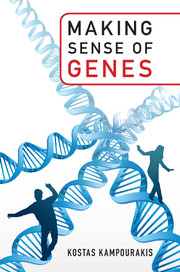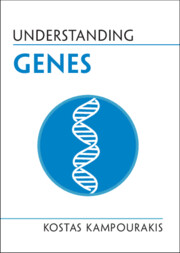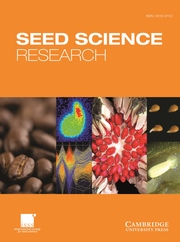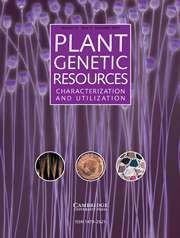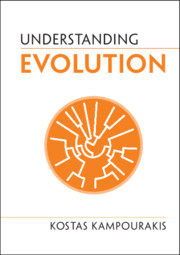Making Sense of Genes
- Author: Kostas Kampourakis, Université de Genève
- Date Published: March 2017
- availability: Available
- format: Paperback
- isbn: 9781107567498
$
34.99
Paperback
Other available formats:
Hardback, eBook
Looking for an inspection copy?
This title is not currently available for inspection. However, if you are interested in the title for your course we can consider offering an inspection copy. To register your interest please contact [email protected] providing details of the course you are teaching.
-
What are genes? What do genes do? These seemingly simple questions are in fact challenging to answer accurately. As a result, there are widespread misunderstandings and over-simplistic answers, which lead to common conceptions widely portrayed in the media, such as the existence of a gene 'for' a particular characteristic or disease. In reality, the DNA we inherit interacts continuously with the environment and functions differently as we age. What our parents hand down to us is just the beginning of our life story. This comprehensive book analyses and explains the gene concept, combining philosophical, historical, psychological and educational perspectives with current research in genetics and genomics. It summarises what we currently know and do not know about genes and the potential impact of genetics on all our lives. Making Sense of Genes is an accessible but rigorous introduction to contemporary genetics concepts for non-experts, undergraduate students, teachers and healthcare professionals.
Read more- Explains challenging and complex concepts in an accessible way to enable the reader to engage critically with current, often inaccurate, representations of what genes are and what they can and cannot do
- Provides an inter-disciplinary overview, combining perspectives from a wide range of fields with current genetics and genomics research to provide a pragmatic view of genes
- Discusses the uses of metaphors in science and how these should and should not be used
Reviews & endorsements
'A beautifully and lucidly written book of great insights … I have not seen in one volume such clear analysis of the nuanced view of the 'gene' … A valuable book that gives genes a new and accurate meaning and does justice to understanding genetics in a non-reductive [manner] through a systems approach. The clarity, precision and insights are wonderful.' Sheldon Krimsky, Tufts University, Massachusetts
See more reviews'… an extremely intellectual and erudite treatment of the history and meaning of genes and genomes. The book is half hard-core genetics and half provocative and fascinating philosophy of science … cogently written, highly informative and genuinely thought-provoking.' John Avise, University of California
'… it is really marvelous: very clearly written, very thoughtfully structured and marvellously sensitive to the needs of the reader, especially in providing 'take-home message' summaries just when and where they are most welcome. I especially admired the way the author consistently manages to help the reader dial down expectations when faced with hype about genetic tests and the latest 'gene for' discoveries.' Gregory Radick, University of Leeds
'There is a vast and curious mismatch between what biological science has discovered by empirical investigations on the mechanisms of heredity and the understanding of what appears to be the central concept, that of the gene. Despite careful attempts to show both the nature and the significance of this gap, the scientific media, and public perceptions of the concept, persistently follow a successfully popularized view that is not justified by what we now know. Kampourakis' book is an excellent attempt to correct the situation … by bringing impressive scholastic skills to tackle the problem, the author has in my view made a very major contribution. The book deserves very wide attention.' Denis Noble, University of Oxford
'Kampourakis provides an excellent critical analysis of the genetic discourse at the intersection of science and the public, based on the latest scientific findings from genomics and systems biology. The book fills an important gap in the literature in terms of the balance it keeps between accessibility and scientific rigour. It calls for a change in the ways students and the public are told what genes are and what they do, and it does so with compelling persuasiveness. A must-read, packed with convincing empirical material, for educators, journalists and academics who are critical of the usual 'gene for' talk, but do not want to give up on the fascinating insights that the science of genetics provides.' Staffan Müller-Wille, University of Exeter
'… a wonderfully engaging and pedagogical explanation of difficult concepts in biology … Kampourakis has an incredible feeling for how to strike the balance between biological material and conceptual analysis. … If you are teaching life sciences or engaging in any form of public outreach, this book is a must-read. … Throughout, the material is wonderfully up to date … this important book will help us to explain genetics to our friends, students, and fellow academics.' Tobias Uller, Frontiers in Genetics
'… this book addresses the crucial educational and translational science bottlenecks of postgenomics, and delivers on its promise to the readers to move beyond the gene sequence to broader sense making for human genetics and genomics.' George P. Patrinos, OMICS: A Journal of Integrative Biology
'Kampourakis describes concisely how the late 20th century saw a revision in our view of what a gene really is. … [He] comes down hard on the hype surrounding 'decoding the book of life', as well as [those] who did not understand the relationship between DNA sequences and complex characters. … [the book] provides a useful companion to biology undergraduates and the interested layperson will find it informative in its critique of naïve genetic determinism. I would certainly recommend it.' Charalambos P. Kyriacou, BioEssays
'Making Sense of Genes is a useful and informative refresher and reminder that, for the public, sense can be made of genes if geneticists are clear about concepts and contexts, and realistic about interpretations and implications of their research.' John R. True, The Quarterly Review of Biology
'Making Sense of Genes is an elegantly written book containing many refreshing insights about how the notion of the gene was developed in the late 19th century and how it is used and misused today. … Rather than depending on facile metaphors for gene function ('blueprints', 'programs') like most other popular treatments of biology, the author, Kostas Kampourakis, deftly deconstructs them, showing why they have been adopted, but how they mislead. He convincingly shows that while the notion that there are genes 'for' specific characters, such as height or aggressive behavior, is based on multiple misconceptions, the idea of genes 'for' some diseases, including metabolic disorders and cancers, may have some merit, even though strict causation is rarely straightforward.' Stuart Newman, GeneWatch
'Kampourakis's Making Sense of Genes … [offers] a clear and compelling account of what genes do and do not actually do. It is one of the most readable accounts of genetics that also gives careful attention to those complex historical-philosophical frameworks that are so often left out of discussions written by scientists. … [This] is a text suitable for students and secondary educators, certainly. But, more than this, it is a text for researchers to digest. Perhaps it will help experts in genetics to see the gaps in their ability to convey philosophical and historical information to students and the general public that leads to so many misunderstandings … Kampourakis is to be applauded for writing such a clear and persuasive text encouraging us to reframe our understanding and misunderstanding of the science, its history, and its implications for our daily lives.' Erik L. Peterson, Metascience
'… an erudite and fascinating book that presents historical and contemporary accounts of the gene concept while explaining exactly what it is that genes can and cannot do. Kampourakis clearly knows his stuff. He is not satisfied to merely make the case that genes do not determine our traits; he does the hard work of explaining how the scientists who study DNA do their work, and what they have discovered about how genes are used in the development of phenotypes … Kampourakis fulfills his promise to make sense of genes.' David S. Moore, New Genetics and Society
Customer reviews
Not yet reviewed
Be the first to review
Review was not posted due to profanity
×Product details
- Date Published: March 2017
- format: Paperback
- isbn: 9781107567498
- length: 314 pages
- dimensions: 228 x 152 x 17 mm
- weight: 0.52kg
- contains: 97 b/w illus. 10 tables
- availability: Available
Table of Contents
Acknowledgments
Prolegomena: genes, science and science fiction
1. Mendel and the origins of the 'gene' concept
2. The genes of classical genetics
3. The molecularization of genes
4. So, what are genes?
5. 'Genes for' (almost) everything
6. Are there 'genes for' characters?
7. Are there 'genes for' diseases?
8. So, what do genes do?
9. Genes are implicated in the development of characters
10. Genes account for variation in characters
11. Genomes are more than the sum of genes
12. Limitations in the study of genomes
Concluding remarks: how to think and talk about genes?
Further reading
References
Glossary.-
General Resources
Find resources associated with this title
Type Name Unlocked * Format Size Showing of
This title is supported by one or more locked resources. Access to locked resources is granted exclusively by Cambridge University Press to lecturers whose faculty status has been verified. To gain access to locked resources, lecturers should sign in to or register for a Cambridge user account.
Please use locked resources responsibly and exercise your professional discretion when choosing how you share these materials with your students. Other lecturers may wish to use locked resources for assessment purposes and their usefulness is undermined when the source files (for example, solution manuals or test banks) are shared online or via social networks.
Supplementary resources are subject to copyright. Lecturers are permitted to view, print or download these resources for use in their teaching, but may not change them or use them for commercial gain.
If you are having problems accessing these resources please contact [email protected].
Sorry, this resource is locked
Please register or sign in to request access. If you are having problems accessing these resources please email [email protected]
Register Sign in» Proceed
You are now leaving the Cambridge University Press website. Your eBook purchase and download will be completed by our partner www.ebooks.com. Please see the permission section of the www.ebooks.com catalogue page for details of the print & copy limits on our eBooks.
Continue ×Are you sure you want to delete your account?
This cannot be undone.
Thank you for your feedback which will help us improve our service.
If you requested a response, we will make sure to get back to you shortly.
×
